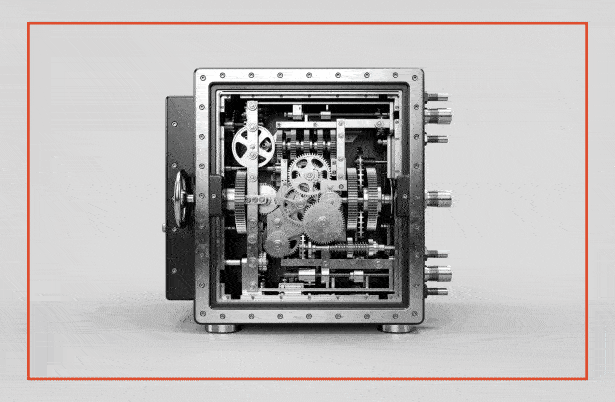As an engineering lead, you must build an excellent team that doesn’t just build great products but also collaborates effectively and can see how their contributions lead to outcomes. If you’ve struggled in the past with gaps in soft skills that have led to communication breakdowns or reluctance to adapt to new technologies despite building a technically proficient team, you may have found your anticipated outcomes fell short of expectations.
In engineering, hard skills and technical experience are valuable but don’t account for all the requirements of an effective team. Without necessary soft skills like communication, leadership, and organization, your intelligent team will struggle to collaborate and achieve results effectively.
Ultimately, a holistic combination of non-technical skills and software development expertise is best for a high-performance team. This article will cover the six top software engineer soft skills to look for when hiring talent for your software engineering team.
Learning: Continuous Improvement for Quality
Continuous improvement is one of the best soft skills for any profession. Lifelong learners are dedicated to constantly improving their technical skills, keeping them up-to-date with the latest industry trends and technology updates.
A team dedicated to online learning supports a high-quality, innovative product, ensuring your organization is on the front line of industry innovation.

How to Identify Candidates With Strong Learning Goals
You can gauge whether candidates are invested in learning during the interview process by asking how they stay up-to-date on industry trends. Ideal candidates will have a few techniques for keeping themselves in tune with the latest advancements in their field. They might do this by attending conferences, earning certificates, or participating in other industry events.
When we’re evaluating individuals to join the MEV team, we look for the following qualities regarding learning:
- Ability to find, understand, and retain information quickly
- Learns from mistakes and the experiences of others
- Proactively seeks and acts on feedback
- Follows the latest updates in their stack or technical area
- Applies the Progressive JPEG Method when learning
- Perspectives on past failures and opportunities for growth
- A deep understanding of their shortcomings and knowledge gaps
How to Foster the Development of a Strong Desire to Learn
Some individuals need more coaching to invest in their education than others. You might encourage your team to invest in learning by making it part of annual or quarterly goals. Alternatively, you can ask team members to attend conferences or industry webinars.
With all soft skills, it’s imperative to establish an overarching company culture that supports them. From the top down, your organization must invest in continuous improvement.
Leadership: Guiding the Development Process
In addition to their craftship and technical skills, quality software engineers are also great leaders. You don’t need to be a manager to practice excellent leadership skills.
When it comes to software development, individuals can demonstrate strong leadership soft skills by establishing and sharing a strong vision with the rest of the team. High-quality products only happen when the entire team is aligned and invested in achieving a goal.
The best leaders have a desire to clear the path for a purposeful team culture and inspiring development. These individuals understand the value of collaboration and delegation, knowing that when a team works together toward common goals, they build better products.
How to Identify Software Engineers With Strong Leadership Skills
At MEV, we look for a few qualities when it comes to essential leadership soft skills:
- Technical vision ownership and propagation
- Effective task delegation
- Efficient and unbiased high-impact decision-making
- An understanding of personal management and team leadership styles
How to Help Team Members Hone Leadership Skills
Provide opportunities for ownership early and often. Team members can practice leadership by owning projects and specific goals. To lead successfully, individuals must also support knowledge sharing and strategic delegation. Encourage team members to share knowledge and capabilities with other team members.

Communication: Enhancing Team Dynamics
A high-performance engineering team communicates well and builds strong team dynamics. Effective communication is vital for preventing misunderstandings.
Through transparency and openness, teams can streamline information exchange and ensure everyone is on the same page. This enables faster conflict resolution, more efficient progress and can minimize team stress.
Each communication type is valuable and plays an important role in successful interactions. Some team members may excel in certain areas but falter in others. Working remotely may create barriers, such as removing non-verbal communication cues or relying too heavily on written communication alone. This can be rectified by encouraging more calls and meetings with cameras on.
How to Identify Fantastic Communicators
At MEV, how we identify strong communicators varies depending on the team member’s seniority. We want junior team members to ask questions and seek help quickly when unexpected challenges or blockers emerge. This ensures they can get the help needed to move forward without holding up a project. It’s okay not to know something, but taking the initiative to find the answer is important.
At the next level, we want team members to forge win-win agreements. This means they must be great internal negotiators who can forge alignment on understanding problems, goals, approaches, and potential solutions. This team member doesn’t create conflicts but aims to resolve any that arise.
We want all team members to:
- Practice active listening
- Find the right level of communication by sharing all pertinent information without overloading colleagues with unnecessary details
- Establish openness so there are frequent opportunities to ask questions
How to Improve Team Communication & Dynamics
All teams benefit from enhanced communication. Emphasize the value of strong communication and provide opportunities for your team members to work together to improve it. Like many software engineer soft skills, communication is strongest when the entire organization is on board. While remote work has many benefits, it can sometimes cause communication to lag behind. From the top down, all team members need to invest in communicating often and transparently.
Team leaders should encourage:
- Frequent one-on-one meetings
- Consistent feedback
- Transparency
- Accountability & extreme ownership
- Leveraging video calls when there’s a risk of miscommunication
Learn more about Maximizing the Value of a Dedicated Team.
.png)
Coaching: Nurturing Skills Development
Software engineers focus on more than just their own craftship — they provide support to help the rest of their team advance as well. Team players are invested in the entire team's success and share frequent feedback to help others improve.
Identifying Great Coaches
At MEV, we look for candidates with a track record of coaching their teammates and peers. Fantastic coaches don’t just teach a different way of doing things, they explain why to approach a task in a specific way.
It’s imperative that team members provide critical feedback in a constructive way that the coachee will receive well. Individuals in leadership positions should be skilled in setting SMART goals and helping their team achieve them.
Improving Coaching Skills
Create opportunities for your team to coach and learn from each other. Traditionally, more senior employees will provide coaching to junior team members. However, it’s also valuable for junior software engineers to coach their leaders.
Self-Organization: Flexibility and Adaptability
All members of a high-performance software development team have strong time management skills. Individuals can accomplish tasks without wasting time, appropriately prioritize work, and avoid blockers. For example, if some data is required to test a task, and obtaining it takes time, an engineer should ask for this data before the work on the task begins.
Software engineers who excel at self-organization know that work must often be reprioritized. If a more urgent task arises, they have the flexibility and adaptability to adjust their plan accordingly. Similarly, if a team member has too much work for their availability, they will strategically delegate to ensure all tasks are completed on time.
This skill also includes:
- Utilizing working time efficiently
- Avoiding overtime
- Keeping a life-work balance, thus preventing emotional burnout.
Identifying Candidates with Strong Self-Organization Skills
When interviewing software engineers, we recommend asking candidates about…
- How they approach organization and task management — they should focus on task priority without wasting time.
- What this individual does when priorities shift or their workload is too large
- How they handle competing priorities
Be sure to request specific examples of how they approached these different scenarios.
Take Your High-Performance Engineering Team to the Next Level
Software development is an evolving industry, making soft skills more future-proof than technical skills. Each organization approaches software development slightly differently, making it beneficial for companies to provide specialized training to software engineers.
MEV is your pragmatic technology partner for project delivery and expediting your product roadmap. We can interface directly with your engineering team to achieve your goals together.



.jpg)
.jpg)


.png)
.png)
.webp)


%20(1).jpg)





